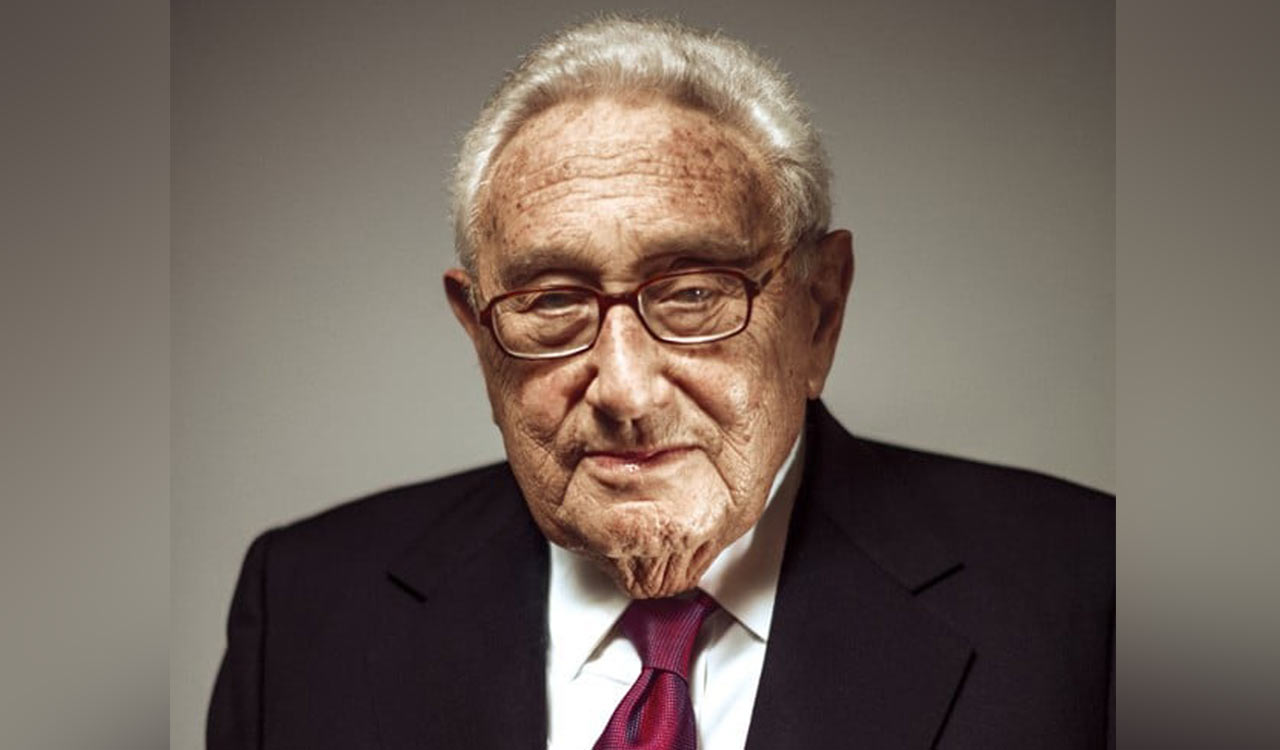It’s unfair to judge Kissinger from the prism of present-day politics as his worldview was a product of the turbulent times he lived in
Published Date – 11:59 PM, Fri – 1 December 23

Henry Kissinger (Photo: X)
Celebrated and reviled in equal measure, Henry Kissinger, who died at the age of 100, was undoubtedly one of the most influential global figures who shaped post-World War geopolitics, particularly American foreign policy. It would be unfair to judge this powerful diplomat and scholar from the prism of present-day politics as his unsentimental worldview or his pragmatic diplomacy was a product of the turbulent times he lived in. Having guided America through the Cold War history, as Secretary of State and national security adviser between the late 1960s and 1970s, Kissinger left a complicated legacy that still resonates in the current relations with China, Russia and the Middle East. Revered in some parts of the world for his diplomatic and negotiating skills but scorned in others for pursuing policies that promoted autocratic regimes and violation of human rights, his biggest contribution was establishing friendly relations with China and achieving a détente with the Soviet Union. While Indians may not forgive him for the American support to Pakistan during the 1971 war to liberate Bangladesh, it must be pointed out that such a policy was driven by realpolitik of protecting an important Cold War ally — Pakistan — and also embracing an ideological adversary like Communist China as a strategic partner to serve the US interests in the 1970s. One should resist the temptation of using one single event in history to make a sweeping judgement of an influential global diplomat. Instead, international politics of the past and the people who shaped it must be viewed from a larger geopolitical dynamic.
As an exponent of power politics, Kissinger had no hesitation in accepting, during interviews later, that he would have done precisely what Indira Gandhi did in 1971 — seize an opportune moment to break up Pakistan and establish India’s primacy in the subcontinent. In fact, it was Kissinger who was among the first to prod Washington to recognise the reality of a nuclear India, when New Delhi conducted nuclear tests in 1998, and called for finding political accommodation with India by putting aside the non-proliferation ideology. No doubt, Kissinger was a player on the world stage, decades after retiring from government service, till the very end, transforming almost every global relationship he touched. Kissinger was particularly popular in China whose leadership venerated him for his landmark role in forging a diplomatic opening to Beijing. While Kissinger’s role in shaping the geopolitics of much of the 20th century was immense and unparalleled, having advised 12 American presidents, his legacy is not without its flaws. His Cold War realism allowed him to view smaller nations as mere pawns in the greater battle. He was the architect of the Nixon administration’s efforts to topple Chile’s democratically elected Socialist president, Salvador Allende. He was also accused of breaking international law by authorising the secret carpet-bombing of Cambodia in 1969-70.




